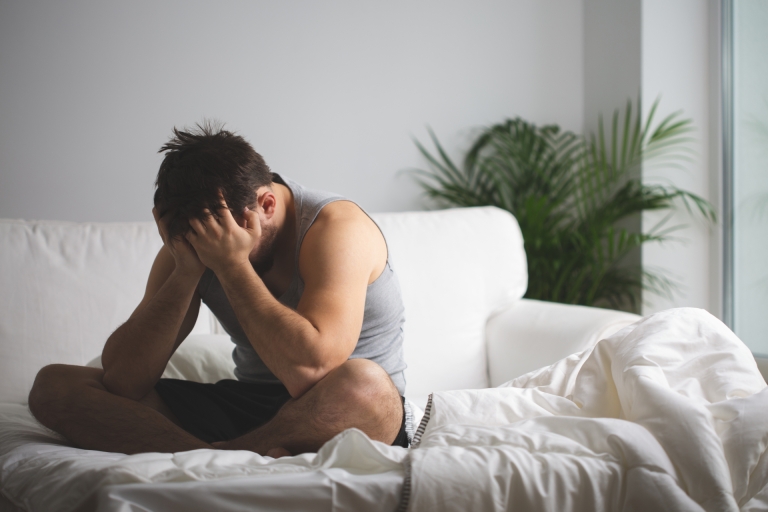Best tips to get over a depersonalization and derealization
Jul-2024How to fight insomnia?
How to fight insomnia?

Insomnia is a very common problem in the grieving process, and you'll probably start experiencing it from the very first day of the loss of your child.
Insomnia happens to almost every bereaved parent, at least at some moment of the grieving process. You'll find yourself awake at 3 a.m. wondering why everything happened the way it did. Many will suffer from PTSD, a post-traumatic stress disorder we have written about in some of our previous blog posts. PTSD is related to insomnia as well.
Insomnia usually comes together with every part of the grieving process. You can experience it in the stage of shock, anger, but also guilt and depression. In this article, we want to give you some tips and advice on how to fight insomnia.
1. Make a sleeping schedule. You've probably realized how many times I told you that it's very important to have a daily schedule and stick to it in the grieving process. That will help you to take care of yourself and keep your body healthy.
It would be best if you can go to bed at a similar or the same time - every evening. Waking up at the same or similar time is also very recommended.
*A lot of bereaved parents tend to work too much, even through the night, to keep themselves occupied and their minds busy. Yet, this is really not good for you - instead of running away from your emotions and reality, it would be better to face everything with understanding, support, and help. That is exactly what you can find on our website.
2. One hour before going to sleep - do this. You should relax for an hour before going to sleep. And by relaxing I mean taking a hot shower or bath or reading a book you like. Stay away from the screens, phones, computers, and TVs because they can wake you up. Blue light and bad news are responsible for keeping you awake if you use technology right before going to bed.
3. Quiet environment. Your bedroom should be quiet. It's recommended that it is also dark enough, but we will let you decide about that part. Make sure that your mattress and pillows are very comfy.
4. Physical activity during the day. Your body has to be tired before going to sleep, but not tired from bad emotions. Take up a physical activity, but do it during the day. Workouts in the evenings can mess up your sleeping schedule and can keep you awake for a while.
5. Dinner. Eat a light dinner fulfilled with proteins, veggies, and healthy fats. Our recommendation would be cheese, salad, and some nuts. Avoid chocolate, black and green tea, and coffee. Caffeine should be restricted and not taken after 6 p.m. Anyways, it is also bad for your anxiety and can worsen it.
6. Melatonin supplements. These can be very effective and I've already mentioned them in some of the previous texts. Consult with your doctor about melatonin supplements.
+Bonus advice - avoid trying so hard to fall asleep. Everyone has experienced this - you're laying in bed, cannot fall asleep, yet you're forcing yourself to sleep. Don't do this - it won't help. If you cannot sleep, get up and take a book you like. Read. This will be more effective than forcing your body to fall asleep.
Insomnia is very rarely an isolated mental health issue. Most of the time, it's a result of stress or is linked to other mental health problems, such as anxiety and depression.
Hope these tips and advice were helpful.



